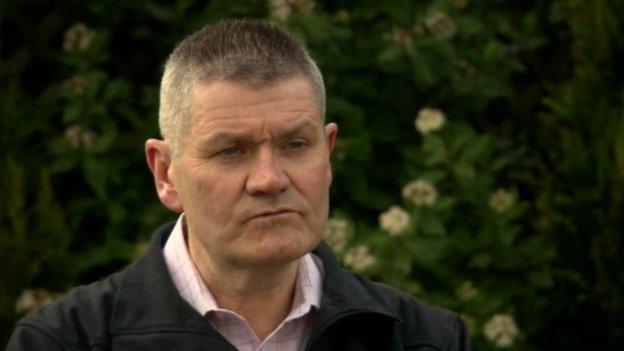Historical abuse compensation: Party leaders urge Bradley to act
- Published
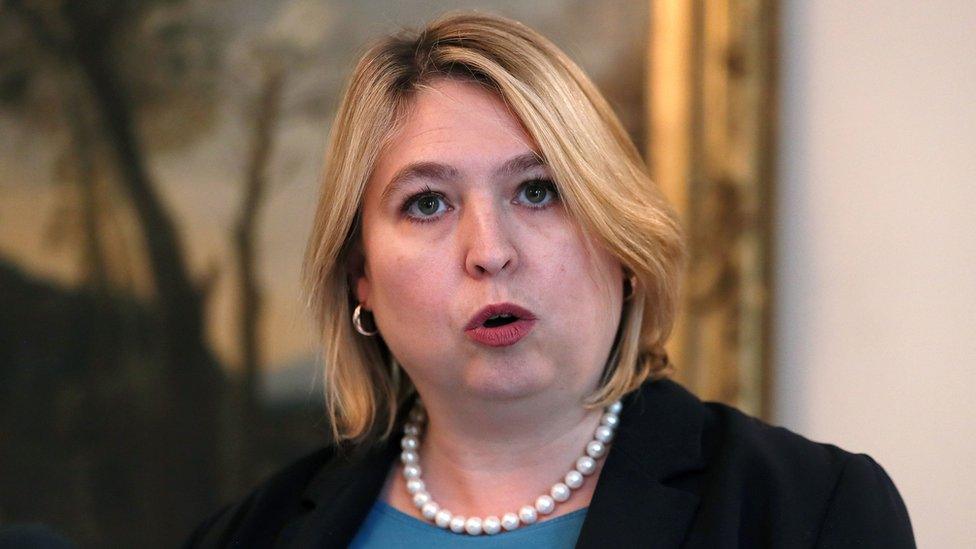
Karen Bradley has been urged to help abuse victims "without further delay"
Six Stormont party leaders have called on the Northern Ireland secretary to legislate to compensate victims of historical institutional abuse.
In a letter to Karen Bradley, they said legislation to help victims was needed "without further delay".
A spokesperson for Mrs Bradley said the secretary of state had been clear about her determination "to bring this issue to an urgent resolution".
Compensation was recommended in 2017 after an inquiry into the abuse.
But the power-sharing Northern Ireland Executive at Stormont collapsed just days after the inquiry report was published, stalling the plans for compensation.
The party leaders said they agreed with Northern Ireland Civil Service boss David Sterling, who asked her to take control of the issue.
The letter sent to Mrs Bradley on Thursday was signed by the leaders of the Democratic Unionist Party (DUP), Sinn Féin, the Ulster Unionists, the SDLP, the Alliance Party and the Green Party.
In it, they told her that she should put "suitable legal and financial" arrangements in place to address "the needs of victims".
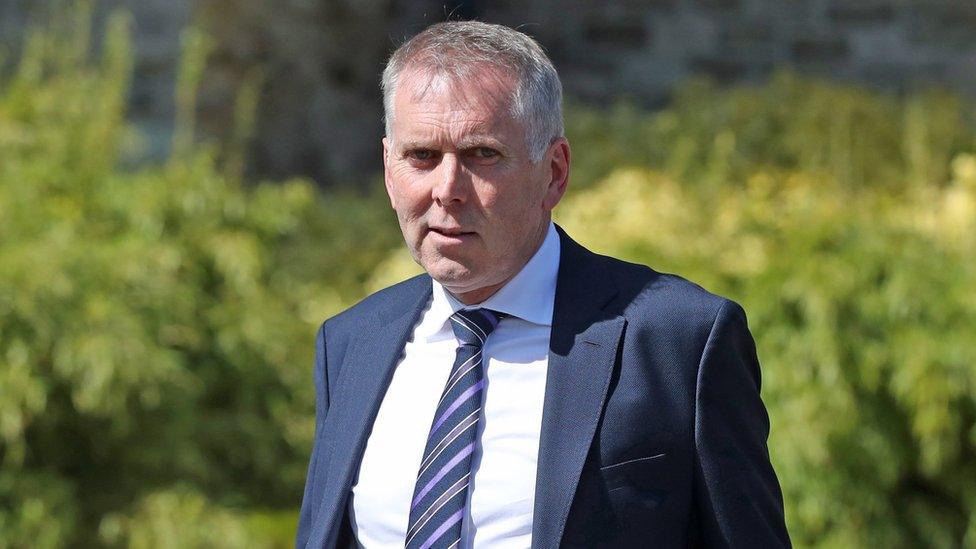
David Sterling urged Karen Bradley to take control of the issue of compensating abuse victims
Mrs Bradley's spokesperson confirmed the secretary of state had written to the party leaders earlier on Thursday, asking them to work with her to answer fundamental questions identified by Mr Sterling on issues arising from the Historical Institutional Abuse (HIA) public consultation.
The spokesperson said: "She is then prepared to consider legislation at Westminster if that is the best and quickest way to deliver the right resolution for the victims and survivors."
'Anger of victims' groups'
BBC News NI understands that the key question relates to whether the parties agree on the level of payment being increased from the basic £7,500 - as recommended by inquiry judge Sir Anthony Hart in his report - to £10,000.
It is expected that the parties should come back with their answers to the questions by the end of this month.
Suggestions that the issue of compensation should be dealt with as part of the Stormont talks have caused anger among victims' groups.

Inquiry chair Sir Anthony Hart recommended that abuse victims should be compensated
Speaking at the Balmoral Show, Mrs Bradley said some "fundamental questions" had arisen during a public consultation on draft legislation.
"I want to get on with this with the utmost urgency but those questions need answering and part of that is the political parties in Northern Ireland helping to answer those questions," she said.
She added: "To get legislation through Westminster, which I am prepared to do, these questions will need to be answered before that can happen."
'Complex issues'
BBC News NI has seen a letter from Mrs Bradley, which was sent to victims' groups on Tuesday.
It came a day after Stormont's Executive Office published responses to a public consultation on HIA redress.
The consultation received 562 responses - the Executive Office said it has completed its analysis of them.
In the letter, Mrs Bradley suggested that putting HIA payments as an item in the Stormont talks was the "quickest possible way to bring this issue to a resolution".

The inquiry heard evidence from hundreds of people who spent their childhood in residential homes and institutions
She added: "The current talks are the best opportunity for these complex issues - such as the total redress payment - to be discussed by local politicians."
Mrs Bradley also said it is "vital" progress is made by the end of May so that "draft legislation can be finalised".
'Shameful betrayal'
The HIA Inquiry was set up by Stormont leaders to investigate allegations of abuse in children's residential homes run by religious, charitable and state organisations.
Its remit covered a 73-year period from the foundation of Northern Ireland in 1922 through to 1995.
The inquiry made a number of recommendations, including compensation, a memorial and a public apology to abuse survivors.
Since the inquiry ended two years ago, 30 survivors of historical institutional abuse have died.
Mrs Bradley said she will meet the HIA Inquiry chair Sir Anthony Hart in the coming days, as well as a number of victims' and survivors' groups next week.
The human rights organisation Amnesty International has described the latest development as a "shameful betrayal of abuse victims, who have been let down time after time".
- Published14 May 2019
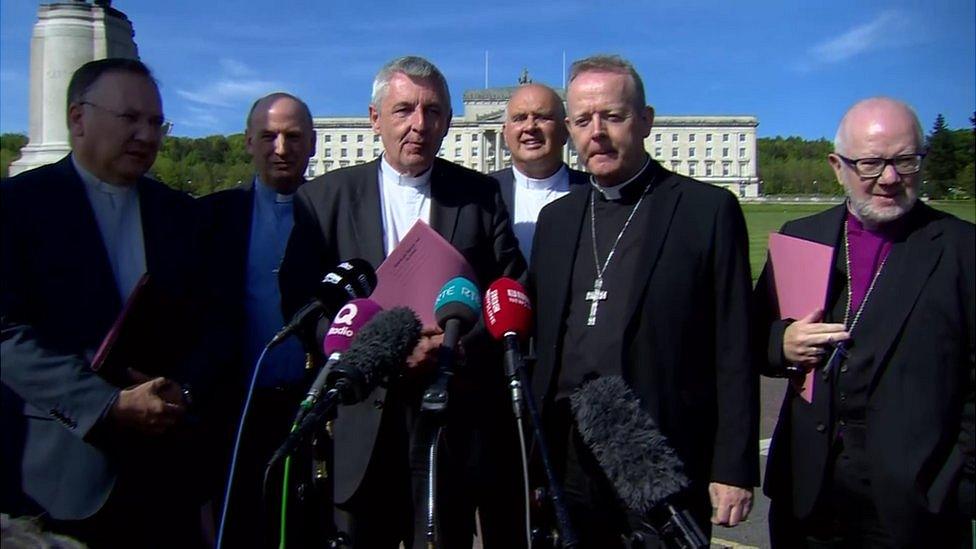
- Published2 April 2019
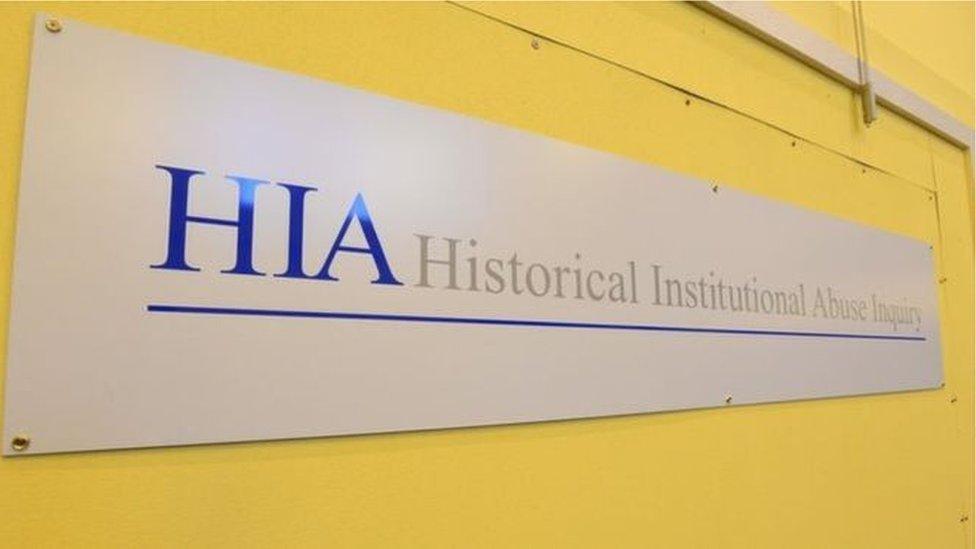
- Published1 April 2019
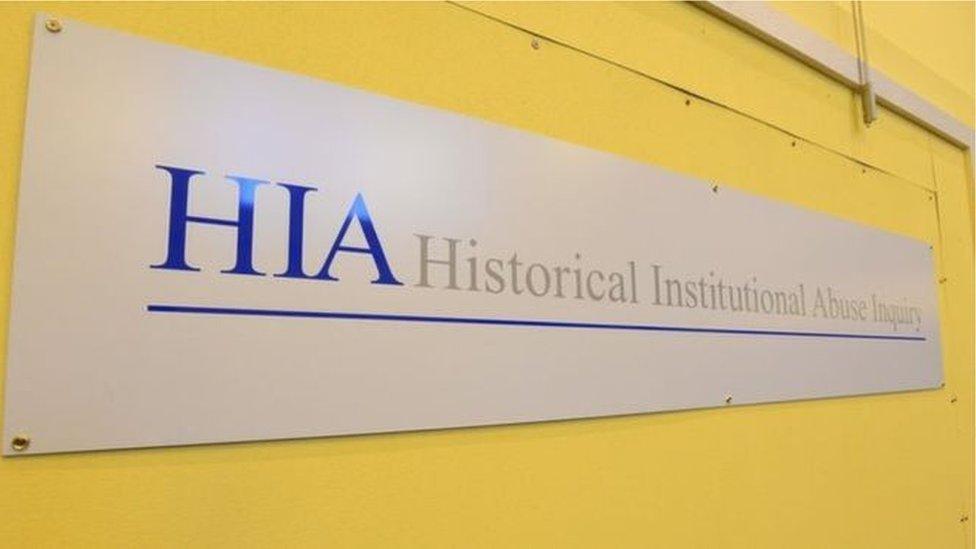
- Published22 March 2019

- Published19 November 2018
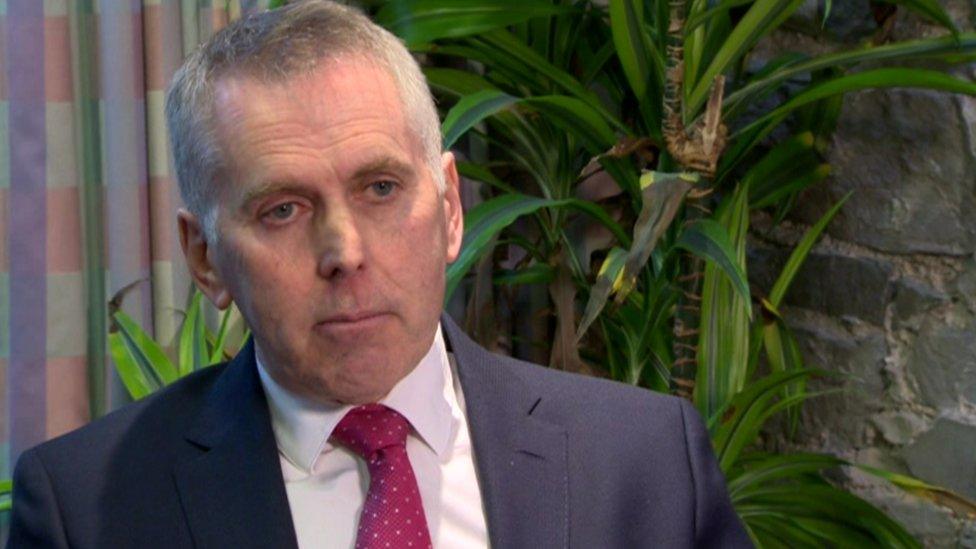
- Published8 November 2018
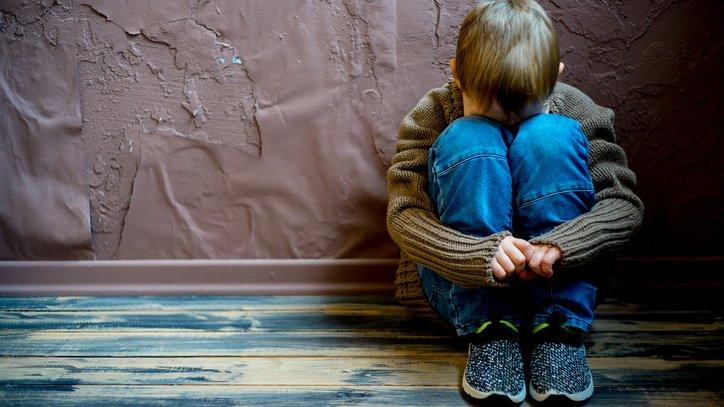
- Published15 December 2017
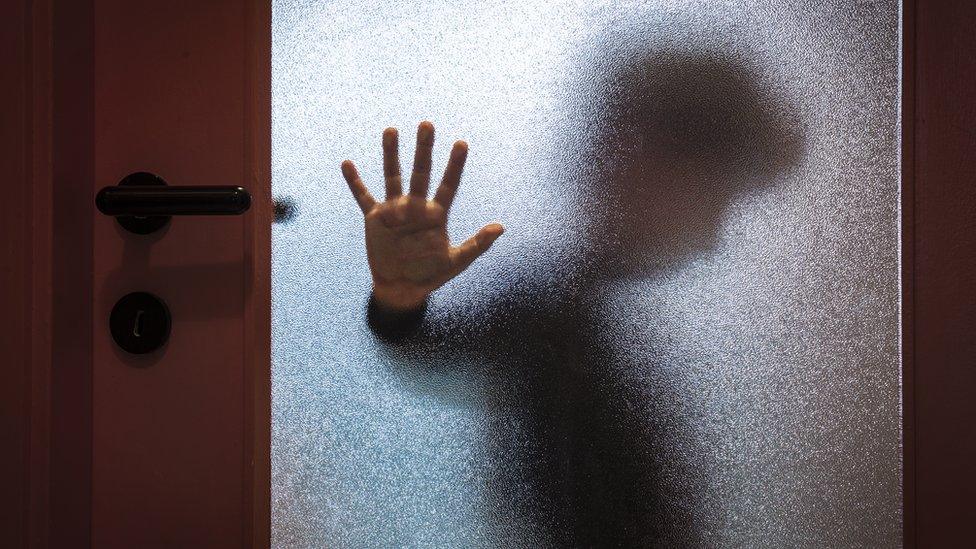
- Published25 February 2015
